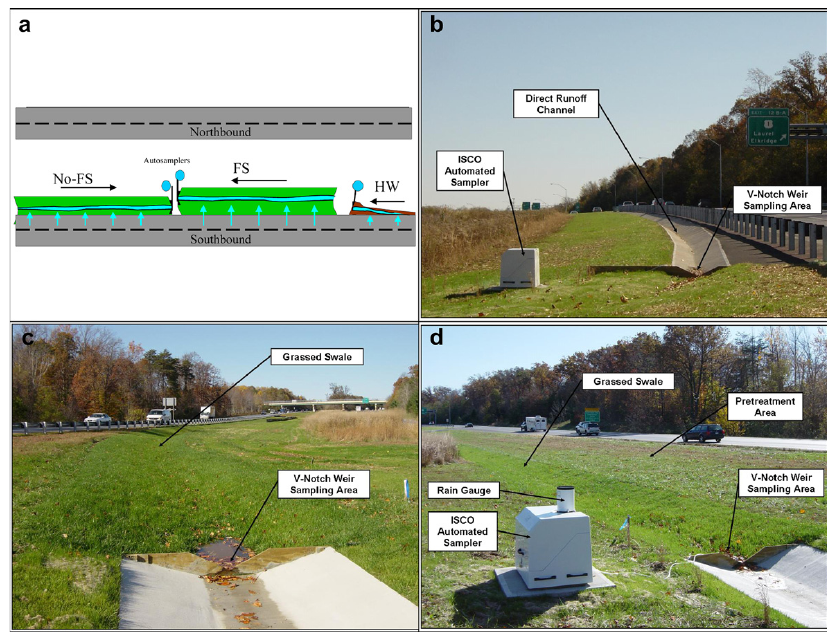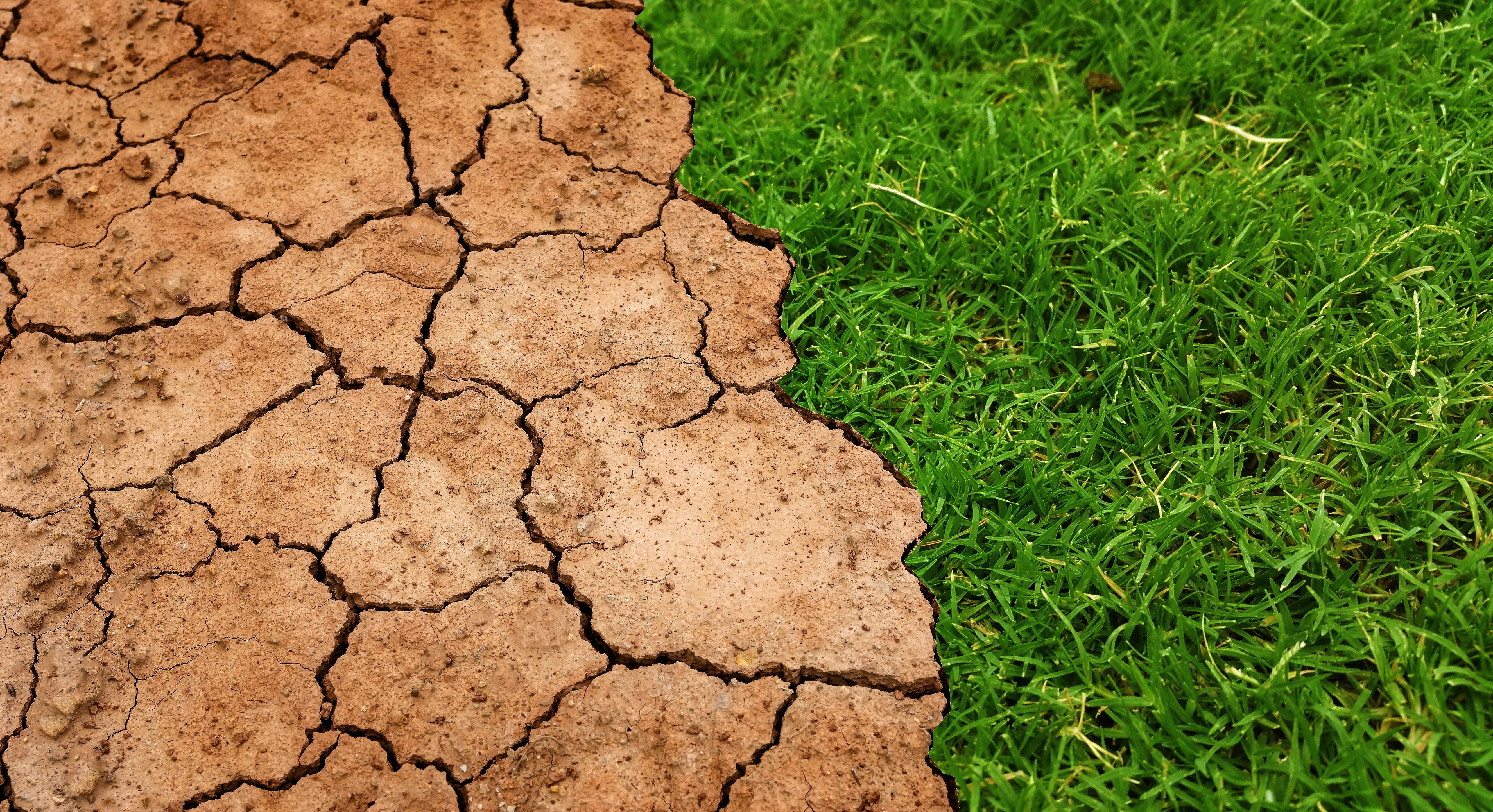
Research Interests
Drought Indices, Drivers, & Forecasts
My research has focused on improving the calculation of relative drought indices, such as the Standardized Precipitation Index (SPI) and the Standardized Precipitation-Evapotranspiration Index (SPEI), along with an R package designed to easily implement these findings.
I have begun to use these indices to address the complex issue of seasonal drought forecasting, identifying the drivers of major historical and recent drought events.
Relevant work
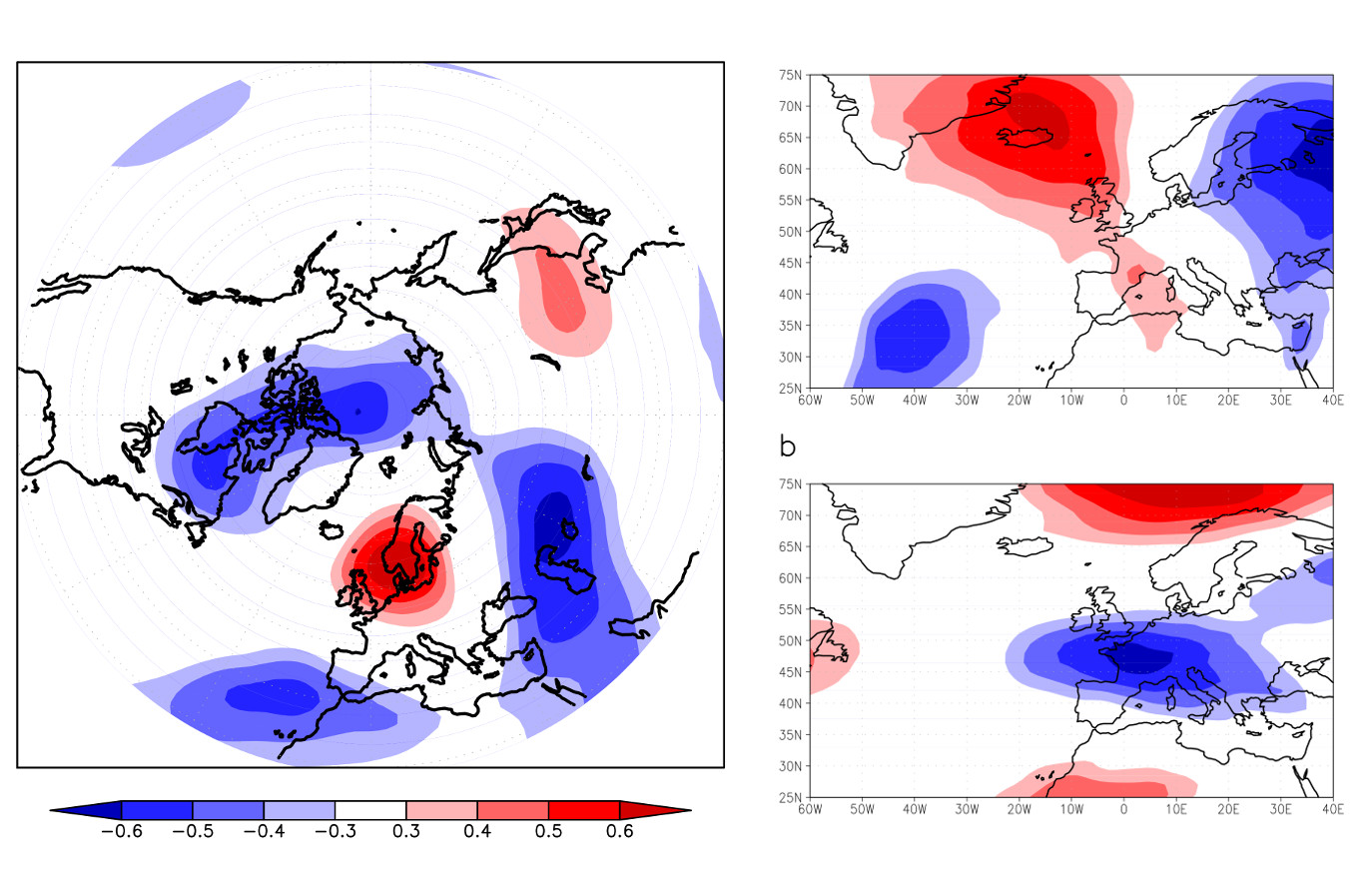
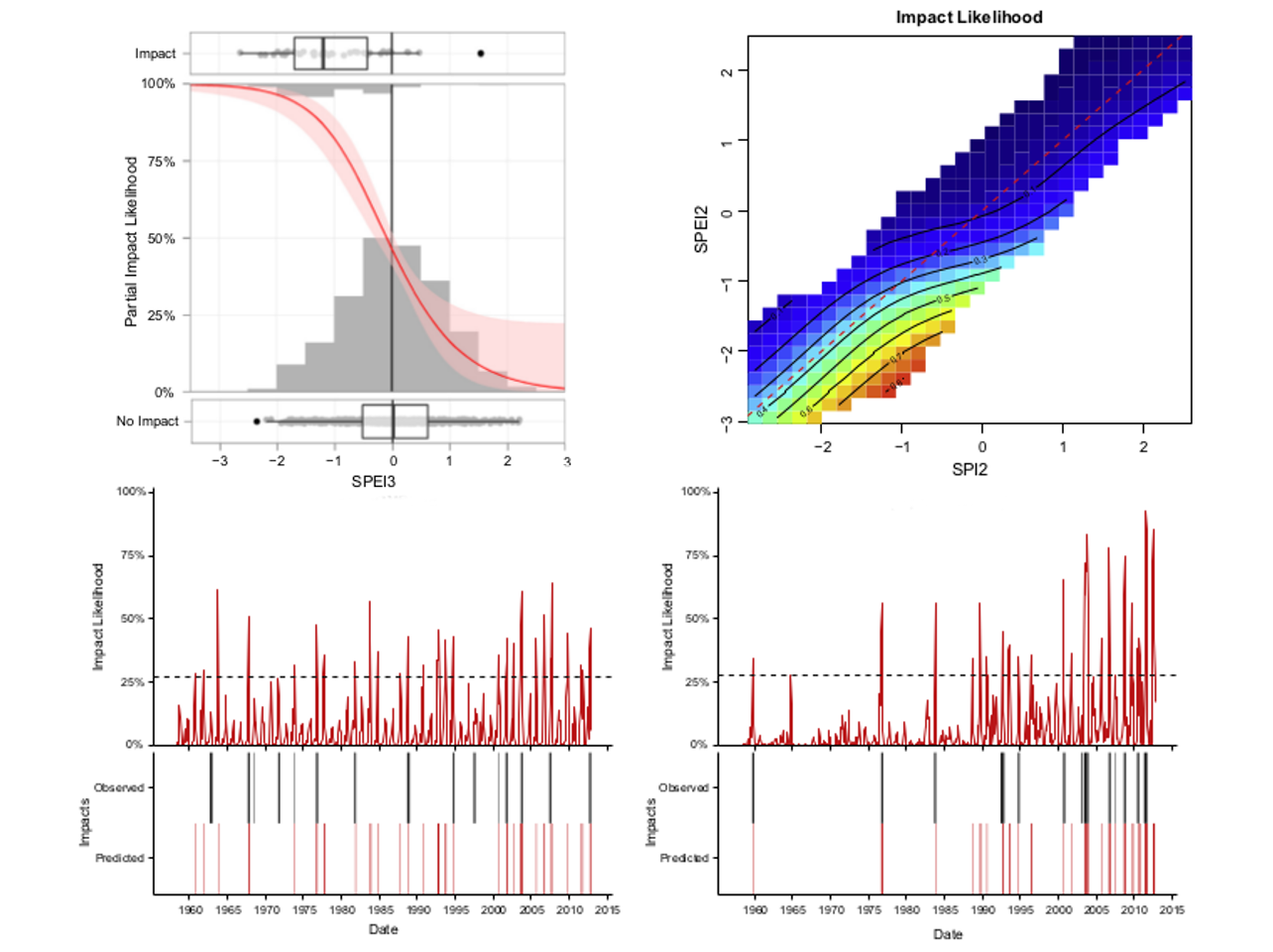
Impacts of Hydrologic Extremes
Drought events produce a myriad of social, economic, and environmental impacts. I have designed logistic regression models to relate drought indices with the likelihood of agricultural losses, wildfires, and public water supply deficits
This work depends on the European Drought Impact Report Inventory, a public drought impact database, which I helped to program.
I am interested expanding to more comprehensive impact models that could be used in concert with drought forecasts to predict impacts in real-time or to project the effects of climate change.
Relevant work
Water Resources Management and Optimization
To address droughts and water shortages, it is important to improve water resources decision-making during these extreme events. I study this through systems modeling and optimization.
My work has used multi-objective evolutionary algorithms to provide decision-makers with clear risks and benefits from which they can decide the most appropriate risk trade-off, balancing societal needs with environmental function.
Relevant work
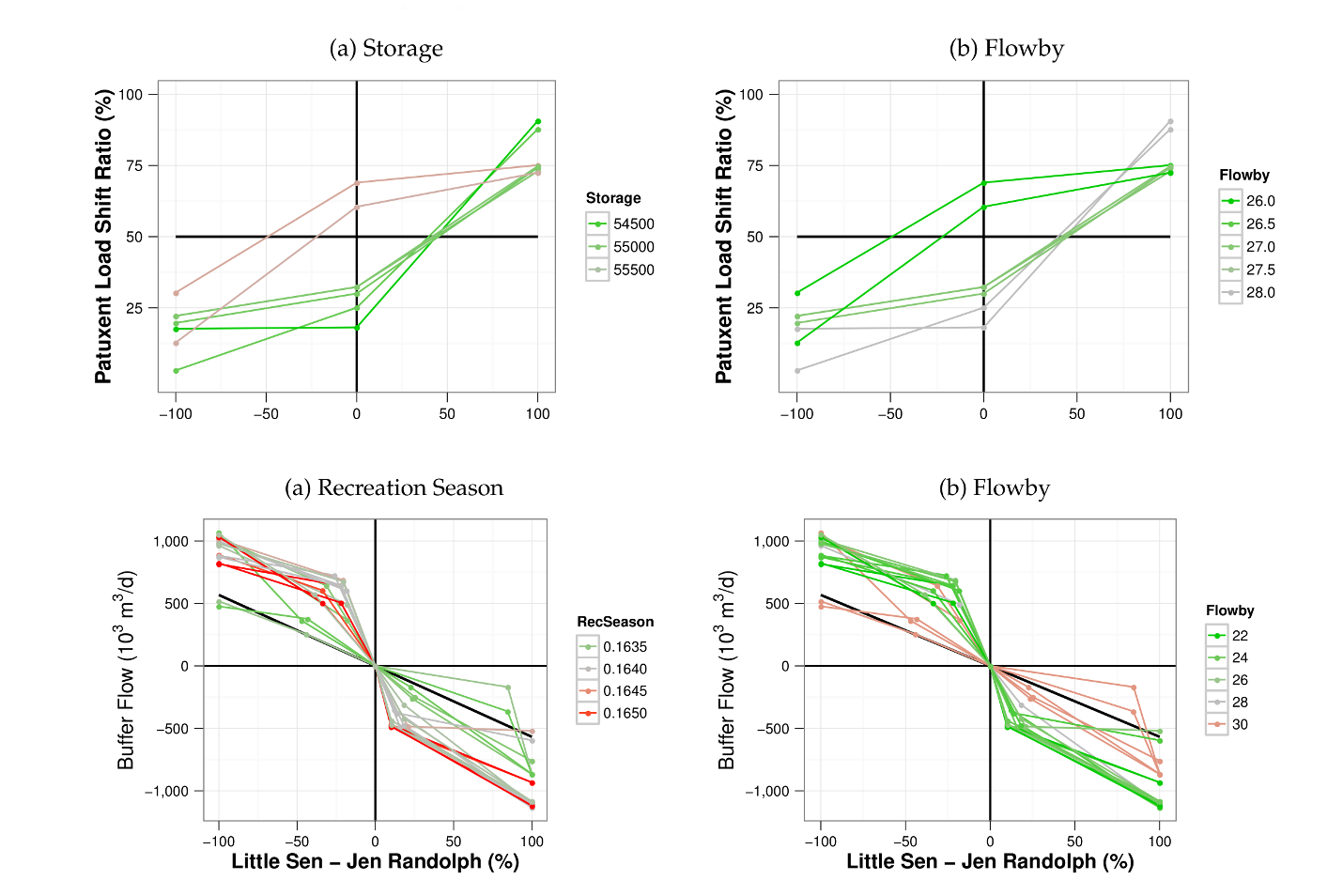
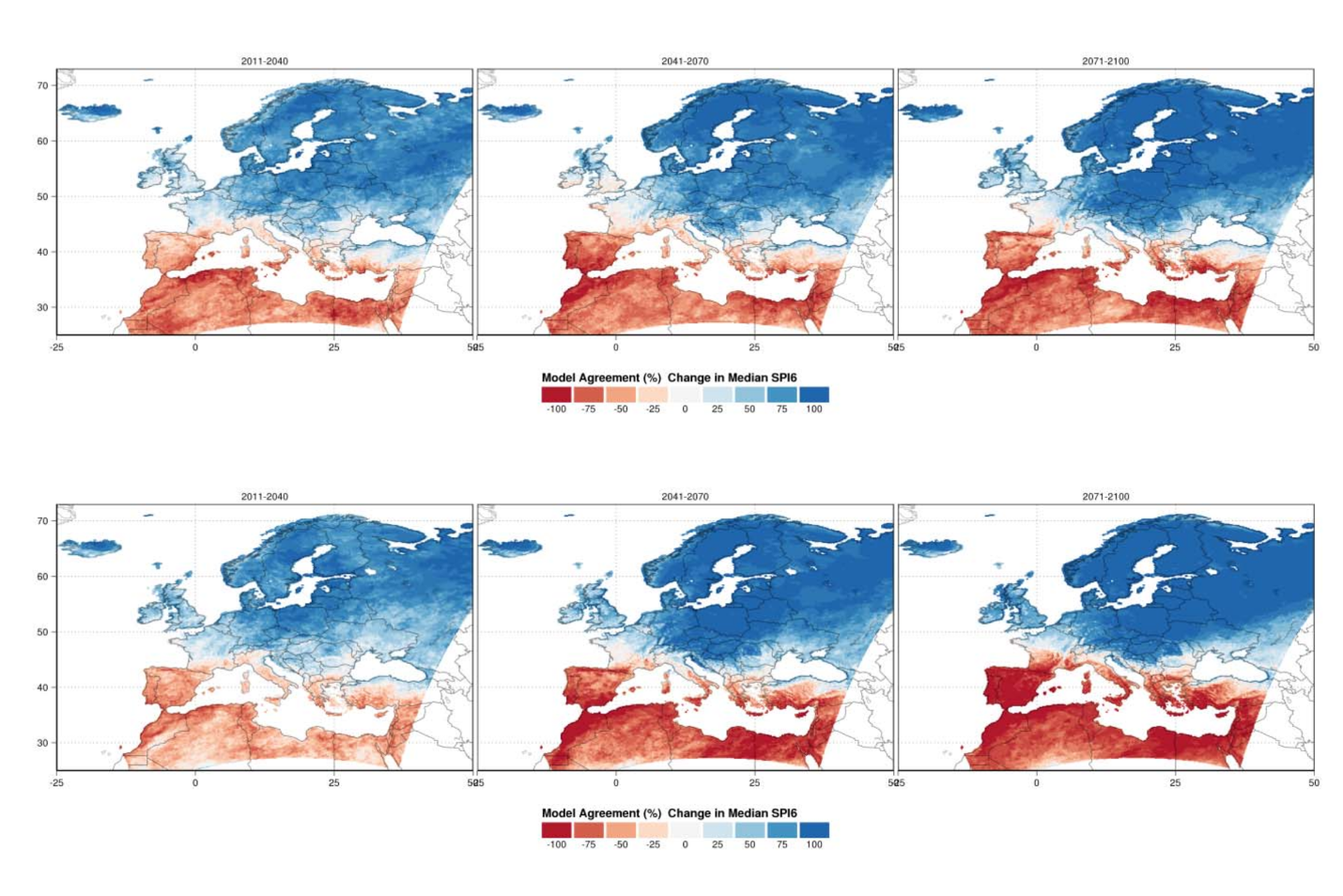
Climate Change and Drought
My research deals with the effect of climate change on extreme events and water resources, also using paleo-records to place future changes into a long historical context.
I have developed stochastic methods to simulate streamflow changes driven by climate change and an initial method to disaggregate monthly streamflows from annual paleo-records. This work also includes a conmparison of drought indices across Europe under projected climate change.
Relevant work
Grassed Swale Runoff Treatment
Vegetated channels (grassed swales) are increasingly used to convey urban stormwater runoff, better approximating pre-development flow conditions.
I am interested in understanding the hydrologic improvement and pollutant removal efficiency of these structures and how they can be designed to function better.
Relevant work
